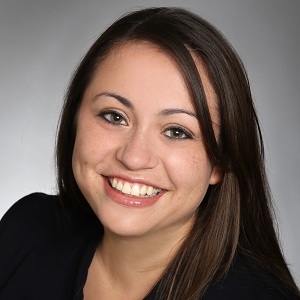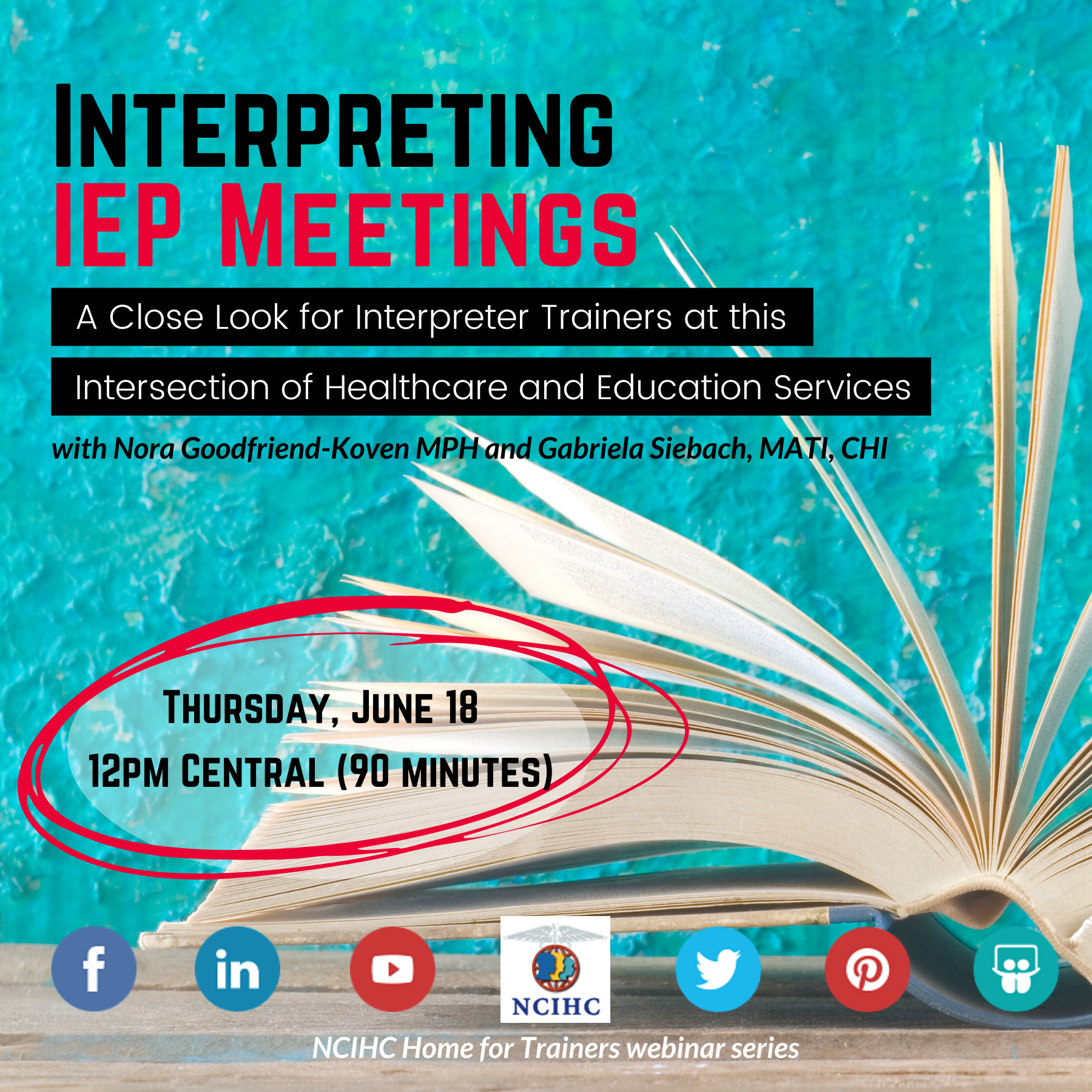Interpreting IEP Meetings: A Close Look for Interpreter Trainers at this Intersection of Healthcare and Education Services
Individualized Education Program/Plan/Program (IEP) meetings are at a crossroad between all community interpreting subspecialties: Medical, Legal and Social. Medical interpreters are often specifically requested and recommended for these encounters due to their preparation to tackle key medical information with ease. In order to facilitate effective communication, interpreters must be knowledgeable and flexible enough to adapt to a hybrid setting that produces several challenges. In addition, the IEP meetings frequently center around children with various disabilities. As such, these meetings convene specialists from many disciplines to assist the school staff in finding the best placement for the child. Specialists include nurses, therapists, psychologists, educators, even occasionally law enforcement.
In this presentation, participants will walk through the IEP meeting process to understand the context of the communication they are tasked with interpreting. The presentation will include analysis of some of the most common jargon and discussion on strategies for managing these unique encounters. The presentation will review the skills needed in interpreting for multiple parties at once, application of the CHIA standards to this setting, specialized vocabulary needed, and insight on the sometimes confusing role of the interpreter. The presenters will also discuss how trainers can impart these skills to interpreters.
Learning Objectives:
- Describe the players in an IEP and the role of the interpreter
- Lead emerging interpreters to solve at least 1 interpreting dilemma typical of this setting
- Identify resources to add 10 new words to the interpreter’s personal glossary
- Identify the IEP process, participants and key components.
- Define Special Education jargon
- Describe communication flow and problem-solving strategies for interpreting during IEP meetings
- Discuss ways trainers can impart skills and knowledge required for IEP meetings to their students and trainees
About the presenters:

Gabriela Siebach is a Certified Healthcare Interpreter (CHI™) who has accumulated more than 15 years of professional experience in linguistics, and has spearheaded the development of multiple training, mentorship, and assessment programs. She holds a graduate degree from the world renown Middlebury Institute of International Studies at Monterey and is currently serving on the National Council on Interpreting in Health Care Board of Director and the Policy, Education & Research Committee. She works as a freelance Spanish interpreter in legal, healthcare and education, and as an Analyst at MasterWord Services.

Nora Goodfriend-Koven MPH has been dedicated to issues of equity and health for over 3 decades. Presently she is a free-lance Spanish interpreter and a trainer of interpreters. A former fulltime and currently adjunct professor at City College of San Francisco (CCSF) in the Health Education Department, Ms. Goodfriend-Koven was the lead instructor coordinator of the HealthCare Interpreter Certificate Program, where she currently teaches an occasional short-term course. She developed a 40-hour training course for interpreting in educational settings which has been implemented in several Northern California school districts.
|






